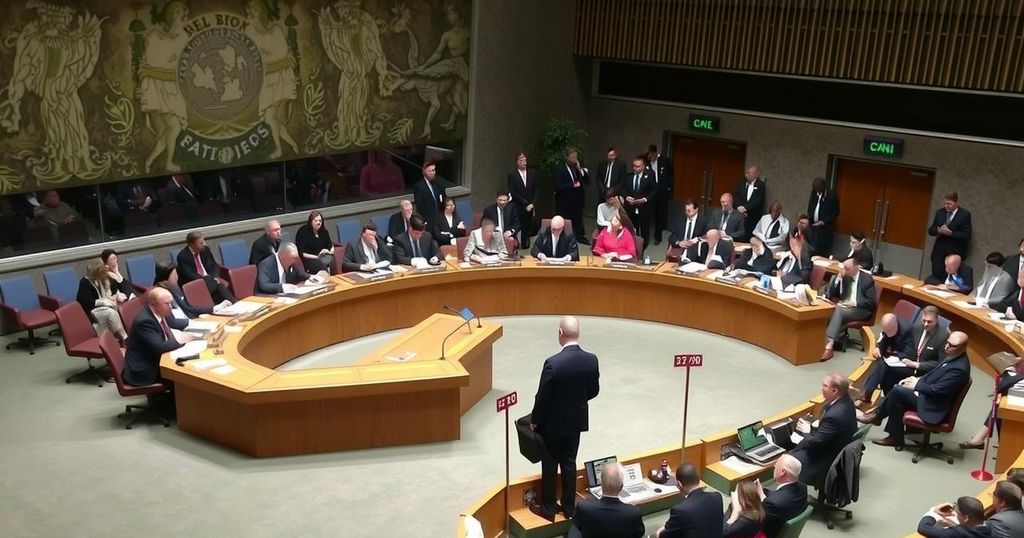On December 11, 2024, the UN General Assembly voted 158-9 to call for an unconditional ceasefire in Gaza, urging humanitarian aid and the release of hostages. Despite extensive support, the resolution faced rejection from the United States and Israel and reflects ongoing global concerns over the humanitarian crisis caused by the conflict between Israel and Hamas since October 2023.
On December 11, 2024, the United Nations General Assembly passed a resolution calling for an immediate and unconditional ceasefire in Gaza, garnering overwhelming support with a vote of 158 in favor, 9 against, and 13 abstentions. The resolution demands not only a ceasefire but also the unimpeded release of hostages and access to urgent humanitarian aid for the citizens of Gaza, particularly those suffering in the north of the territory. This resolution reflects sentiments that have remained unaddressed by the UN Security Council, where similar motions were previously vetoed by the United States in defense of Israel amidst ongoing hostilities against Hamas following their significant attack on October 7, 2023.
Although the resolution holds a non-binding status, it encapsulates the growing international pressure regarding human rights concerns and the humanitarian situation on the ground. Many representatives from UN member states spoke in favor of the resolution prior to the vote, articulating the dire consequences of inaction and the urgent need for humanitarian intervention. Furthermore, representatives such as Palestinian UN Ambassador Riyad Mansour have vocally condemned the ongoing suffering of Palestinian civilians and the international community’s perceived failure to respond effectively to the tragedy.
In conjunction with the ceasefire resolution, the Assembly also passed a second resolution urging Israel to uphold the mandate of the UN Agency for Palestine Refugees (UNRWA) and enable its operational continuation. The vote for this resolution was 159 in favor and 9 against, highlighting concerns that Israel’s initiative to dismiss the organization could exacerbate humanitarian challenges in the region.
The recent resolution by the UN General Assembly emphasizes the urgent need to address the humanitarian crisis in Gaza amidst escalating violence between Israel and Hamas. Since the attack by Hamas on October 7, 2023, the situation in Gaza has deteriorated significantly, resulting in substantial civilian casualties and widespread destruction of infrastructure. The United Nations, often acting on behalf of international humanitarian concerns, has taken steps to mediate and call for ceasefires, particularly in situations where the Security Council has been ineffective due to veto powers held by member states, namely the United States. This resolution signals a critical response to the ongoing humanitarian crisis and illustrates global discontent with the status quo. Notably, the U.S. has maintained that any ceasefire should be contingent upon the release of hostages held by Hamas, illustrating a dividing line in international discussions regarding effective conflict resolution and humanitarian assistance in Gaza. The UN General Assembly’s actions highlight a broader discourse regarding the accountability and obligations of nations during armed conflict, especially regarding civilian welfare.
The passage of the resolution by the UN General Assembly for an immediate and unconditional ceasefire in Gaza highlights the urgent need for effective humanitarian intervention amidst the ongoing violence. Despite substantial backing from the international community, the resolution faces opposition from key nations, particularly the United States and Israel, which complicates its implementation. The call for humanitarian access and the protection of civilians remain central to discussions, aiming to alleviate the suffering experienced by the Palestinian populace in the wake of prolonged conflict.
Original Source: www.jordantimes.com







